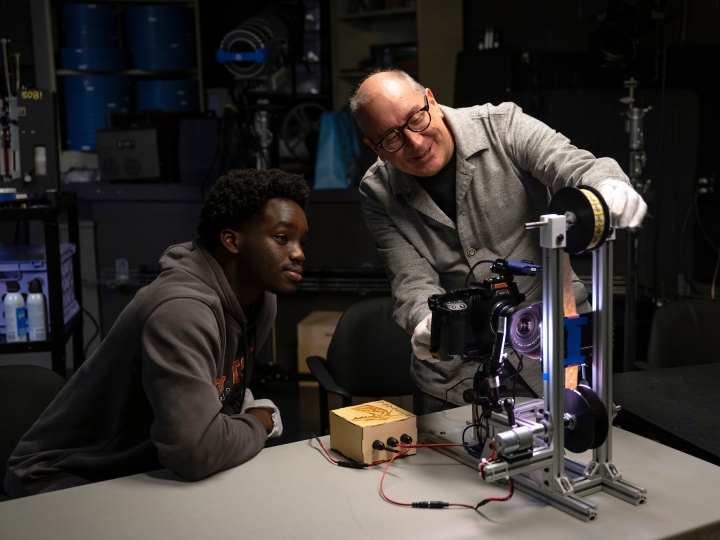Cool Classes: Remaking Public Education
September 18, 2018
What Class? Remaking Public Education
Who Teaches It? Professor Abe Feuerstein, education
"The nature of public education in the United States is constantly evolving. I developed this course to help students consider the impact that recent changes in schooling have on the role of public education in our society. For example, we examine topics such as the growing importance of standardized testing and the increasing number of charter schools. These issues are discussed frequently in the media, and I want to provide students with an opportunity to think more deeply and critically about the ways these changes influence issues such as educational quality and opportunity.
Find Your Path
"The course begins with a focus on charter schools — how and why they developed, how they are governed, how they perform, and their influence on traditional public schools. Then we begin an in-depth examination of standardized testing and efforts to use test scores to gauge school performance and student learning. Along the way, students learn about school reform, including federal initiatives such as No Child Left Behind, Race to the Top and the Every Student Succeeds Act, as well as programs such as Teach For America. We also look at issues related to education funding and the causes of recent teacher strikes in states across the nation.
"I enjoy listening to podcasts and appreciate the kind of journalism and storytelling that can really engage listeners. So rather than assigning a traditional research paper, I ask my students to develop podcasts on educational issues related to those we study in class. Students work in teams of four to pitch ideas to the rest of the class about topics that would engage a public audience. After defining their topics, teams must do research, interview people knowledgeable about their topics and write a script. Students then learn to use sound-editing software and produce a polished seven-minute podcast that features their voices and the voices of the individuals they interviewed for the project. There are many steps in the process, and students are asked to use feedback from me and the class to rethink and revise their podcasts throughout the semester. At the end of the semester, we have a listening party, and each group gets a chance to share their finished projects.
"I hope students leave this class with a better understanding of the importance of educational policy in relation to important social considerations, such as educational equality. More specifically, I hope students are able to understand the political forces and ideologies that shape educational reform efforts, and how those forces have shifted over time."
See what else Bucknell offers in the Department of Education.
Are we missing out on a cool class? Send suggestions to coolclasses@bucknell.edu.

